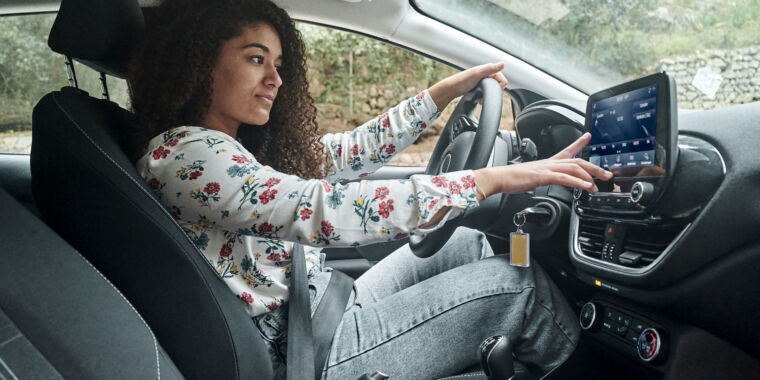A controversial bill that would require all new cars to be fitted with AM radios looks set to become a law in the near future. Yesterday, Senator Edward Markey (D-Mass) revealed that the “AM Radio for Every Vehicle Act” now has the support of 60 US Senators, as well as 246 co-sponsors in the House of Representatives, making its passage an almost sure thing. Should that happen, the National Highway Traffic Safety Administration would be required to ensure that all new cars sold in the US had AM radios at no extra cost.



Your phone ain’t gonna be much use when there’s no tower nearby.
Neither is that radio.
What’s your point?
AM travels significantly further than cell signals, chum. Hundreds of miles instead of just a few.
Yes yes.
And how large is that tower? What happens if say a forest fire rips through the ground station. Tornado. Hurricane. Ooops your entire coverage is gone.
Cell towers are more distributed, meaning loosing any single tower is far less critical. (Typically, phones are in range of 2-3 towers at any given time. Unless you’re way out in the sticks.)
The land under the am tower probably costs more than the entire cost of setting up a cell. (Especially in urban areas where they can go onto rooftops of existing structures.)
But of course this entire conversation is ignoring that it’s am radios in cars. I don’t know about you but most of my day is not spent in a car. Which is turned off when I’m not using it so as to not waste gas or run down the battery.
I have a cell phone inside arms reach practically 24/7. Most people do.
Try reading up more on AM radio signals, buddy.
You know, I read this whole back and forth, and the only takeaway I have is that you have absolutely no idea how any of these technologies work. Like at all. I’m not saying this to be a dick or anything -it’s ok to not know things- but it’s painfully obvious in this case because your lack of fundamental understanding is the core of your argument.
And if you did understand how the tech works, you’d probably get why those options are used instead of your layman’s idea of a good idea. Which is not, in fact, a good idea at all for a variety of reasons. Which is exactly why these other things are being discussed and supported by people who do understand them (and I’m not talking about the rest of the Lemmy comments either, I mean in the real world).
There are tons of scenarios where cell towers/fm transmitters for an area would go down, but cars would still be fully operable. But even if that wasn’t the case, why do you want to remove a public safety option that currently exists, even if you don’t and won’t use it? The only people who benefit are big companies (the exact ones whining they don’t want to comply) that don’t care about you, so why do you give a shit if this inconveniences them?
My cell phone and FM radios won’t work after an EMP. AM will be the first “broadcast signal” to return in such a worst case scenario.
So. This bill is meant to force manufacturers to put am radios inside new cars.
Right?
New cars that, in a hypothetical emp… will be just as fried as your cell phone is.
And that’s why the emergency prep angle doesn’t hold water. You would literally be better off with a hand crank emergency radio (that can almost certainly survive.)
And if AM is removed from cars (AM’s biggest listening base) it will die. If AM radio dies, then the hand crank emergency radio will have no use. Much like the portable UHF/VHF television.
Because there’s no possible way that the government could buy up the 77 stations thst broadcast the NPWS stations.
We’re already subsidizing them heavily because the backup systems to keep them on are expensive.
Edit to add: the demand for AM is going away. Content is cheaper to produce and distribute online.
In stead of passing legislation to bail out a dying industry (what this bill is really about,) they should be looking at ways of resolving the problem.
An easy first step is to buy or otherwise nationalize the 77 critical stations. We can then either maintain them as vital infrastructure or replace them with newer and more capable/effective technologies.
All this bill is going to do is prolong the problem.
Gotcha… And just for funsies, how much money (taxpayer money) have we spent on say… failing banks? I’d say investing zero tax payer dollars to “save” AM radio is a better investment.
But we’re not going to be able to save AM radio.
Outside of rural areas, AM radio has no advantage over cell based internet services. It’s less expensive for the content producers, and it’s inevitable that they switch to streaming instead of broadcast.
And those rural areas don’t provide the audience necessary to sustain the cost of the broadcast service.
Further this bill isn’t without cost- that cost is being paid by everyone who buys a car.